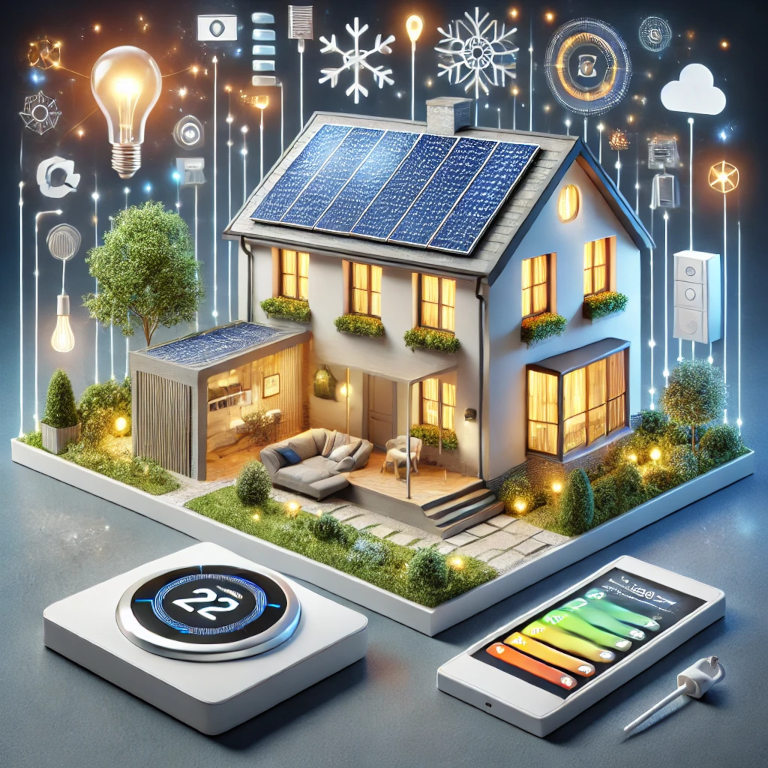Home energy efficiency is a crucial aspect of modern living, offering numerous benefits from reducing utility bills to minimizing environmental impact. By optimizing energy use in your home, you can create a more sustainable, comfortable, and cost-effective living environment. As an expert in Home Living, I will guide you through the essential strategies for enhancing home energy efficiency, providing practical tips and insights to help you achieve your goals.
Understanding Home Energy Efficiency
Home energy efficiency involves using less energy to perform the same tasks, thereby reducing energy waste. This can be achieved through various means, including upgrading appliances, improving insulation, and adopting energy-efficient practices. The goal is to maintain or improve the quality of life while reducing energy consumption and costs.
Benefits of Home Energy Efficiency
- Cost Savings: One of the most immediate benefits of energy efficiency is the reduction in utility bills. By using energy more efficiently, you can significantly cut down on your monthly expenses.
- Environmental Impact: Reducing energy consumption decreases greenhouse gas emissions and reliance on non-renewable energy sources. This contributes to a healthier planet by mitigating climate change and pollution.
- Enhanced Comfort: Energy-efficient homes are typically more comfortable, with better temperature regulation, reduced drafts, and improved indoor air quality. Proper insulation and efficient heating and cooling systems contribute to a more consistent and pleasant living environment.
- Increased Property Value: Energy-efficient upgrades can increase the resale value of your home. Buyers are increasingly looking for homes with energy-saving features that promise lower utility costs and a reduced environmental footprint.
Key Strategies for Improving Home Energy Efficiency
- Conduct an Energy Audit
An energy audit is a comprehensive assessment of your home’s energy use. It identifies areas where energy is being wasted and recommends improvements. Professional auditors use specialized tools to analyze your home’s energy performance.
How to Perform an Energy Audit:
- Hire a certified energy auditor for a thorough inspection.
- Use online tools or DIY kits to perform a basic audit yourself.
- Check for drafts, inspect insulation, and evaluate heating and cooling systems.
- Upgrade Insulation
Proper insulation is essential for maintaining a consistent indoor temperature and reducing energy waste. Insulating your attic, walls, and floors can prevent heat loss in winter and keep your home cooler in summer.
Tips for Insulating Your Home:
- Use high-quality insulation materials like fiberglass, foam, or cellulose.
- Seal gaps and cracks around doors, windows, and other openings.
- Consider insulating your basement and crawl spaces.
- Install Energy-Efficient Windows
Energy-efficient windows reduce heat loss and gain, improving your home’s insulation and comfort. Look for windows with double or triple glazing, low-emissivity (Low-E) coatings, and insulated frames.
Choosing Energy-Efficient Windows:
- Check for the ENERGY STAR label, which indicates high energy performance.
- Opt for windows with a low U-factor (heat transfer) and a low solar heat gain coefficient (SHGC).
- Consider installing window films or shades to enhance efficiency.
- Upgrade Heating and Cooling Systems
Heating and cooling account for a significant portion of home energy use. Upgrading to energy-efficient systems can result in substantial savings and improved comfort.
Energy-Efficient Heating and Cooling Tips:
- Replace old furnaces, boilers, and air conditioners with ENERGY STAR-rated models.
- Use programmable thermostats to regulate temperature based on your schedule.
- Maintain and service HVAC systems regularly to ensure optimal performance.
- Adopt Energy-Efficient Lighting
Switching to energy-efficient lighting is one of the easiest and most cost-effective ways to reduce energy consumption. LED and CFL bulbs use significantly less energy than traditional incandescent bulbs and last much longer.
Lighting Tips for Energy Efficiency:
- Replace incandescent bulbs with LEDs or CFLs.
- Use motion sensors, dimmers, and timers to control lighting.
- Maximize natural light during the day by opening blinds and curtains.
- Install Solar Panels
Solar panels harness the sun’s energy to generate electricity for your home. While the initial investment can be high, solar panels can drastically reduce your electricity bills and provide a renewable energy source.
Considerations for Solar Panels:
- Assess your roof’s suitability, including orientation, angle, and shading.
- Research available incentives, tax credits, and rebates to offset installation costs.
- Hire a reputable solar installer for a professional assessment and installation.
- Optimize Appliance Use
Household appliances contribute significantly to energy consumption. Using energy-efficient appliances and adopting smart usage habits can lower your energy bills.
Tips for Efficient Appliance Use:
- Choose ENERGY STAR-rated appliances, which use less energy and water.
- Unplug devices when not in use to prevent phantom energy drain.
- Run dishwashers and washing machines with full loads and use energy-saving settings.
- Implement Smart Home Technology
Smart home technology can enhance energy efficiency by automating and optimizing energy use. Devices like smart thermostats, lighting systems, and energy monitors help you control and reduce energy consumption.
Smart Home Energy Tips:
- Install a smart thermostat to adjust heating and cooling based on your schedule.
- Use smart plugs and power strips to manage appliance usage.
- Monitor energy use with smart meters and apps to identify areas for improvement.
Summary
Maximizing home energy efficiency is a practical and beneficial approach to reducing utility costs, enhancing comfort, and contributing to environmental sustainability. By conducting an energy audit, upgrading insulation and windows, optimizing heating and cooling systems, adopting energy-efficient lighting, and implementing smart home technology, you can significantly improve your home’s energy performance. Embrace these strategies to create a more sustainable, comfortable, and cost-effective living environment.






